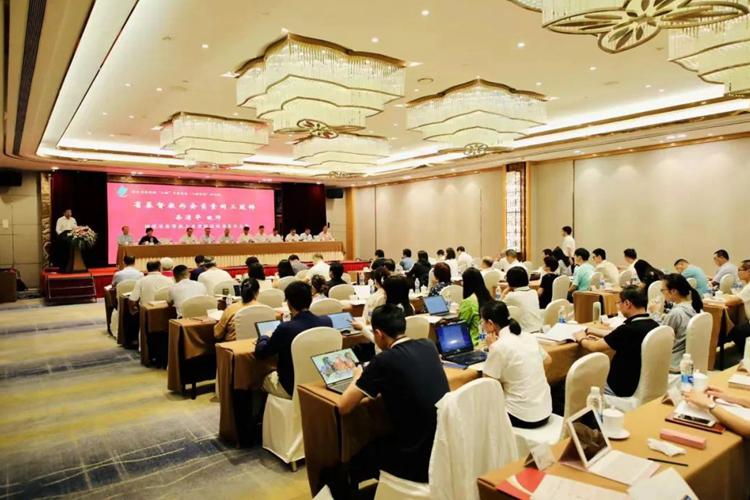A symposium was convened in Fuzhou, Fujian Province, with the aim of constructing a comprehensive Chinese theological framework.
The collaborative efforts of the Chinese Ethnic and Religious Culture Research Center of the Central Institute of Socialism and the Fujian Provincial Christian Council and Three-Self Patriotic Movement (CC&TSPM) brought forth a seminar centered on the two topics of "Eight Beatitudes Theology" and the interpretation, preaching, and application of the Bible within the Chinese cultural context. The State Administration for Religious Affairs (SARA)'s official WeChat account reported on this event, which took place between August 15 and 16.
A diverse gathering of over 70 participants, including representatives from esteemed institutions such as the Central Institute of Socialism, CCC&TSPM, Minzu University of China, Xiamen University, Fuzhou University, Nanjing Union Theological Seminary, and Fujian Theological Seminary, as well as Christian representatives from Hualien, Taiwan, convened for this seminar. Rev. Wu Wei, president of China Christian Council (CCC), emphasized that the central challenge in the localization of Christianity resided in the process of sinicizing theological thinking. The seminar was particularly attuned to addressing matters pertaining to theological thought. The theological framework of Eight Beatitudes Theology was expounded to encourage adherents in Fujian Province and nationwide to serve as beacons of light and agents of positive influence within Chinese society.
Dr. Yue Qinghua, chairman of Fujian TSPM and president of Fujian Theological Seminary, underscored the Chinese church’s need to extricate itself from any reliance on Western theological paradigms and instead foster an indigenous, sinicized theological contemplation. With this objective in view, Fujian CC&TSPM embarked on exploratory initiatives, seeking to formulate the theological thought structure of Eight Beatitudes Theology. This endeavor aspired to shape a theological framework imbued with distinctive Chinese characteristics and reflecting the cultural nuances inherent to the Fujian-Taiwan region.
The roster of keynote presentations encompassed Dr. Yue's discourse on the "Connotation and Extension of Cultural Construction and Sinicization of Christianity," Professor Chen Yilu's elucidation of "The Significance of 'Blessing' in Liturgical Theology," and Professor You Bin's comprehensive investigation into "Eight Beatitudes, Nine Fruits, Ten Commandments: A Life Theology Rooted in Sacred Scripture." Additionally, Researcher Rong Zhangrong from the Yánhuáng Cultural Research Association of Fujian expounded upon "Revisiting the Creation of Eight Beatitudes Theology."
The presentations collectively underscored the pragmatic nature of constructing the theological framework of "Eight Beatitudes Theology" and the constructive merits of fostering discourse between "Eight Beatitudes" and the realm of Chinese blessing culture. Such endeavors were identified as pivotal and commendable ventures in establishing a "Chinese-style Christian theological ideology" that harmonizes with specific societal contexts.
With a focus on the aforementioned two topics, the symposium convened discussions and dialogues within six distinct domains: "Biblical Foundations of Eight Beatitudes Theology," "Systematic Theology of Eight Beatitudes," "Eight Beatitudes and Theology of Character," "Eight Beatitudes and Liturgical Theology," "Ethical and Cultural Aspects of Eight Beatitudes Theology," and "Eight Beatitudes Theology and Historical Theology."
A musical group from Taiwan, under the direction of Rev. Wen Meigui, performed melodious renditions during the conference's intermission to represent the harmonious fusion and close relationship of "blessing" culture that transcended the Taiwan Strait.
- Translated by Abigail Wu












